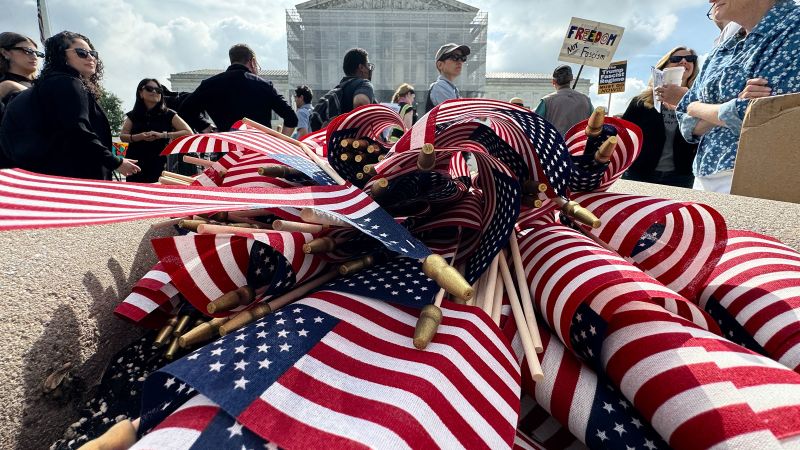CNN
—
President Donald Trump’s executive order seeking to end birthright citizenship will be back in court Thursday for its first major hearing since the Supreme Court limited the way in which lower courts can halt the controversial policy.
The proceeding before a federal judge in Concord, New Hampshire, is a key early test of how the federal judiciary will now scrutinize challenges to Trump’s Day One executive order, which had been halted by judges around the country through nationwide injunctions before it could take effect earlier this year.
Late last month, the Supreme Court – without weighing in on the legality of Trump’s policy – curbed the power of lower court judges to issue nationwide injunctions, while keeping intact the ability of plaintiffs to seek a widespread block of the order through class action lawsuits. Challengers to Trump’s policy quickly raced back to court to do just that.
Immigration rights attorneys will press US District Judge Joseph Laplante, who previously ruled against Trump’s policy, for a new court order in their class action lawsuit that would broadly block it from impacting born or unborn babies.
Should the judge side with the challengers, his ruling could prove to be a critical bulwark against Trump’s policy as other courts scramble to take a second look at their decisions in light of the Supreme Court’s ruling.
In February, Laplante, an appointee of former President George W. Bush, indefinitely blocked the Trump administration from enforcing the order only against members of several nonprofit groups who would have been impacted by it.
“The Executive Order contradicts the text of the Fourteenth Amendment and the century-old untouched precedent that interprets it,” Laplante wrote at the time.
Several other judges similarly ruled that Trump’s order was unconstitutional, but their injunctions applied nationwide and prompted the administration to mount the series of appeals that eventually landed before the Supreme Court.
Thursday’s proceedings will focus solely on a request from immigration rights attorneys behind the challenge for him to certify a class of individuals that would include “all current and future children” who would be affected by Trump’s order, and their parents.
If the judge agrees to certify the class, he’ll then have to decide whether to issue a new injunction that would effectively block Trump’s order nationwide.
“No court in the country has agreed with the administration on the underlying constitutional question. Every court has said that this order is unconstitutional, and so we expect to prevail on that question,” said Cody Wofsy, an American Civil Liberties Union attorney who helped bring the pair of New Hampshire cases. “The issue before the court on Thursday is ultimately just: procedurally, how are we going to ensure that every single child is protected?”
Class action lawsuits require “class representatives,” or individuals who, if the class is certified, will represent the class members.
In this case, those proposed representatives include a Honduran asylum-seeker – referred to in court papers as “Barbara” – who is living in New Hampshire and expecting a baby in October, and a Brazilian man – referred to as “Mark” – who is attempting to get lawful permanent status. Mark’s wife – who is not in the US lawfully – gave birth in March.
“If the Order is left in place,” the lawyers wrote, “those children will face numerous obstacles to life in the United States, including stigma and potential statelessness; loss of their right to vote, serve on federal juries and in many elected offices, and work in various federal jobs; ineligibility for various federal programs; and potential arrest, detention, and deportation to countries they may have never even seen.”
Signed by Trump on January 20, the executive order, titled “PROTECTING THE MEANING AND VALUE OF AMERICAN CITIZENSHIP,” said that the federal government will not “issue documents recognizing United States citizenship” to any children born on American soil to parents who were in the country unlawfully or were in the states lawfully but temporarily.
The Supreme Court said in its June 27 ruling that the administration cannot begin enforcing the order for 30 days, though the government is allowed to begin developing guidance on how the policy will be implemented.
In the other challenges to Trump’s order, lower courts around the country have asked the parties to submit written legal arguments addressing how the Supreme Court’s ruling could impact the nationwide injunctions issued in those cases, and more court proceedings are expected in the coming days and weeks.
But that process will take time and it’s unclear whether any of those courts will narrow their injunctions ahead of when Trump is permitted to enforce the birthright policy.

